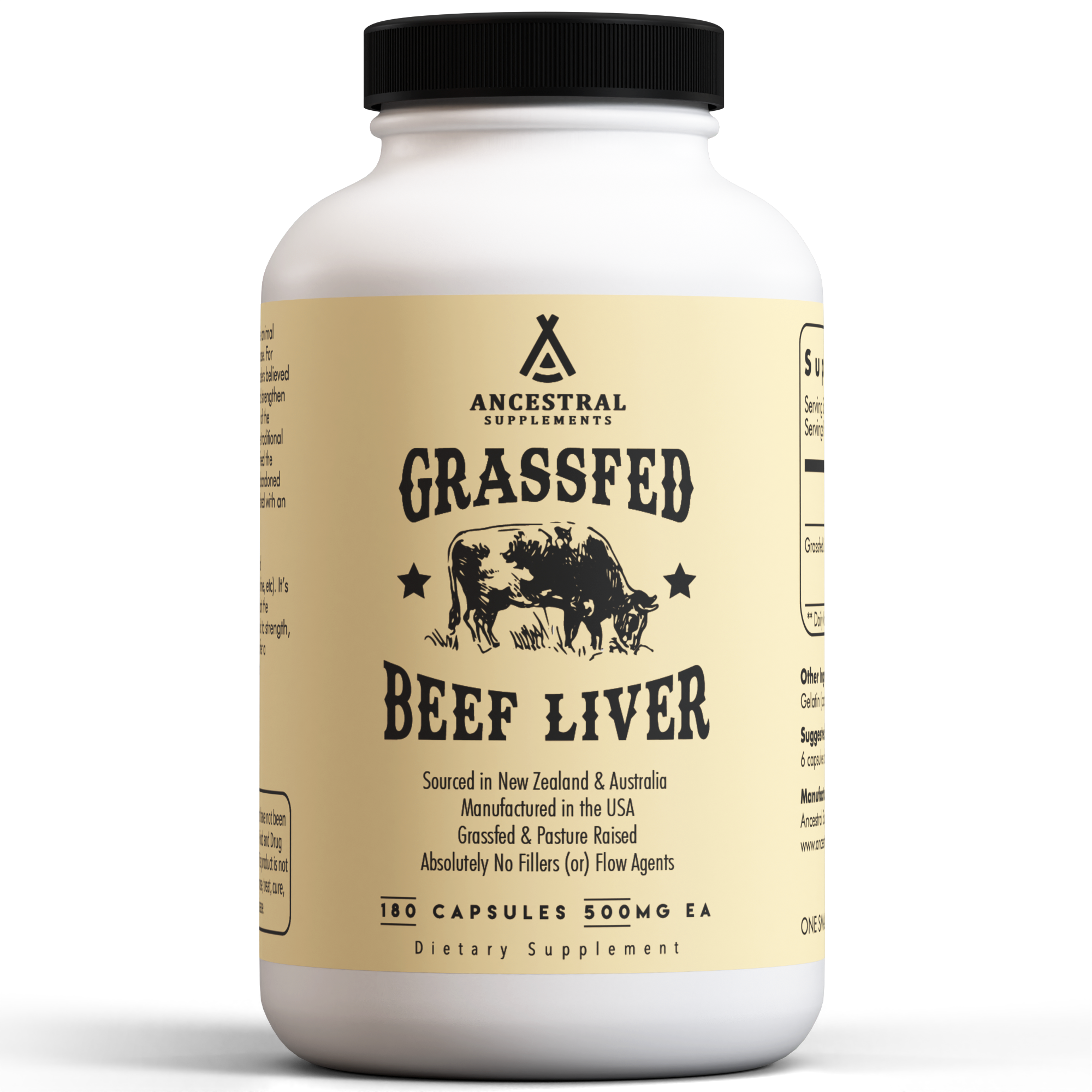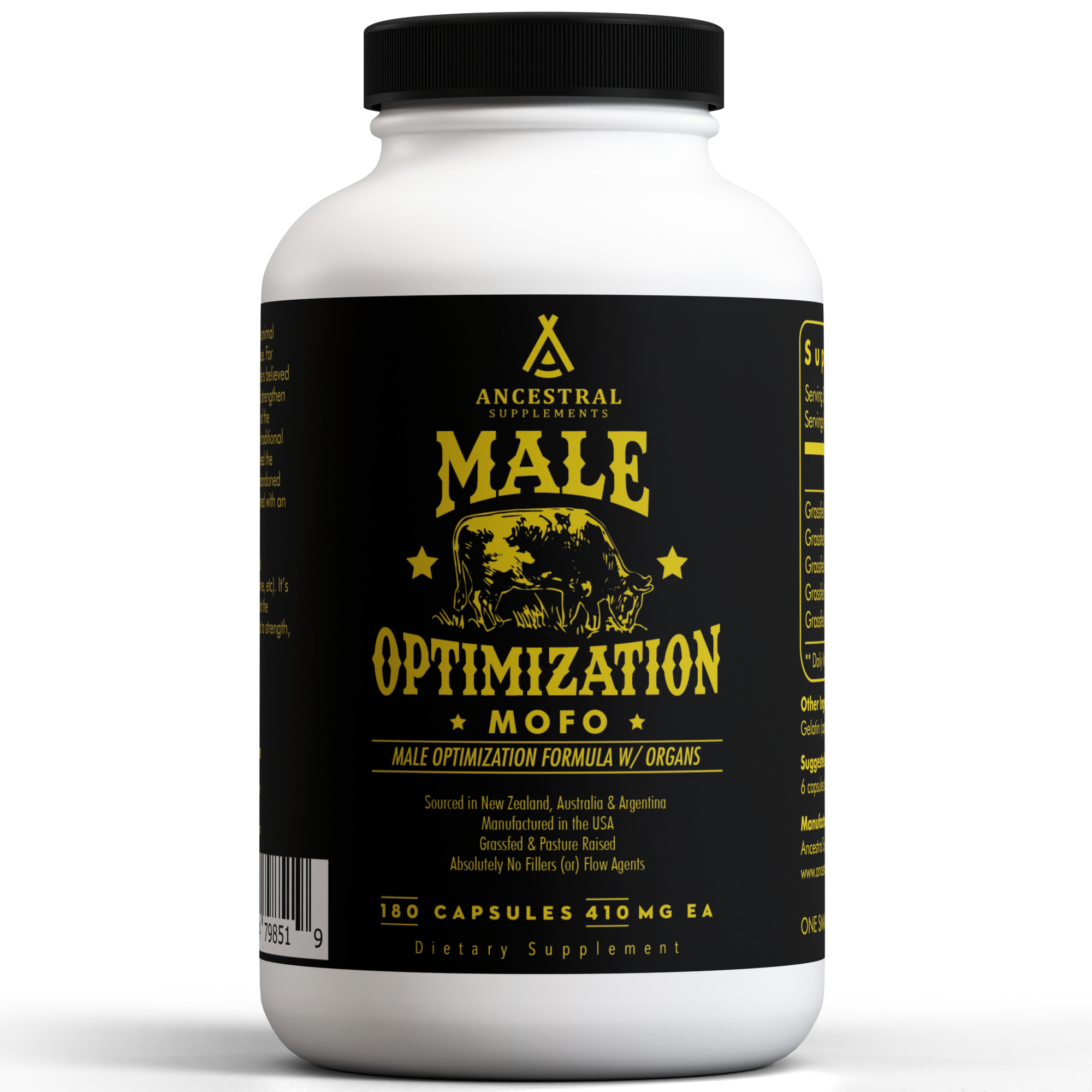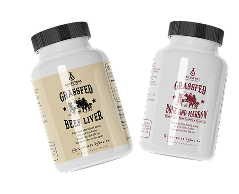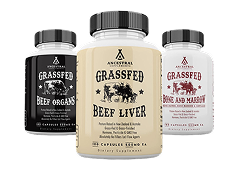Do You Need Fiber on the Carnivore Diet? A Complete Guide

The carnivore diet, which involves eating exclusively animal-derived products, challenges conventional dietary wisdom, especially the recommendation to eat enough fiber.
Many health authorities advocate for a "well-rounded" or balanced diet that includes fiber from various plant sources, such as fruits and veggies. That's because, for many people, fiber can contribute to digestive health and help to lower the risk for certain chronic diseases.
However, the carnivore diet, which excludes all plant-based foods, naturally results in a zero-fiber intake. That might seem concerning, yet it can actually be beneficial for certain people or for specific periods of time.
This guide explores the lack of fiber in the carnivore diet, examining both the pros and cons. You'll learn what fiber does in the gut, what happens when it's removed entirely from someone's diet, and other surprising facts about the connection between fiber intake and health.
Understanding Fiber and Its Role
Let's start with the basics: What is dietary fiber? Fiber encompasses the parts of plant foods that your body can't digest or absorb. Unlike other food components such as fats, proteins, or carbohydrates, which your body breaks down and absorbs, fiber cannot be digested in the same way.
Fiber is usually classified into two categories based on its water solubility:
-
Soluble fiber, which can dissolve in water and can help to lower blood glucose (sugar) levels and cholesterol.
-
Insoluble fiber, which does not dissolve in water and helps food move through your digestive system, increasing stool bulk and often helping to prevent constipation.
Why Are We Told to Consume Lots of Fiber?
Fiber is often celebrated for multiple health benefits. For example, soluble fiber is known for its ability to slow down the absorption of sugar in the blood and decrease "bad cholesterol."
Insoluble fiber aids in accelerating the passage of food through the stomach and intestines, which can help stabilize bowel movements.
Both types of fiber have been linked to a decreased risk of heart disease, diabetes, and colorectal cancer. Consuming plenty of fiber can also be filling and help to control calorie intake, aiding in weight management.
Common Fiber Sources in Standard Diets:
In a typical diet, fiber is obtained from foods like fruits, vegetables, whole grains, nuts, seeds, and legumes. These foods are recommended for their health-promoting properties, including their fiber content and supply of other essential nutrients and antioxidants.
Given that fibrous foods like fruits and veggies can generally support our health, that raises the question is: Is it okay to avoid fiber on the carnivore diet?
The Carnivore Diet and Fiber Debate
The carnivore diet does not contain any fiber at all because it excludes all plant foods. The idea behind the carnivore diet being advantageous for gut health—despite providing no fiber— is that human digestive systems can function properly without fiber because carnivorous eating reduces gut fermentation.
Gut fermentation, which involves bacteria and microbes in the gut breaking down fiber, can often lead to bloating and gas, especially among people who are sensitive to the effects of certain types of fiber. By removing fiber from the diet, the carnivore diet can help to eliminate foods that might irritate the gut lining.
Historical Examples of Low-Fiber Diets
Historically, several indigenous populations have thrived on minimal fiber diets, similar to a carnivore diet. For example, the traditional Inuit diet, which included primarily whale, seal, and fish, contained very little fiber. Despite that, these populations did not suffer from the diseases very often that are commonly associated with Western high-fiber diets.
Is Fiber Really Necessary?
Emerging research challenges the idea that fiber is essential for everyone. Some studies even suggest that reducing or eliminating fiber can help alleviate gastrointestinal problems and constipation in some people, contrary to traditional beliefs about fiber's role in promoting "regularity."
There's also evidence that a zero-fiber diet might reduce symptoms in patients with specific digestive disorders, such as irritable bowel syndrome (IBS) or SIBO, in which high-fiber foods can worsen symptoms like bloating, gas, cramps, and indigestion.
Some medical experts and nutritionists who support the carnivore diet cite clinical observations where patients report experiencing improved digestive health and reduced symptoms tied to inflammation after removing fiber from their diets.
Digestive Health Without Fiber
One common misconception is that fiber is absolutely necessary to prevent constipation. However, evidence from those on the carnivore diet suggests this isn't true.
Many people following the carnivore diet, in fact, report regular bowel movements and a decrease in digestive discomfort after an initial adaptation period. In other words, fiber may not be a prerequisite for proper bowel function like we've been led to believe.
How Digestion Changes on Carnivore
Adopting a carnivore diet eliminates fiber intake, which fundamentally changes how the gut processes food. Without fiber, the gut relies more heavily on stomach acids and enzymes for digestion. This can potentially lead to more efficient breakdown and absorption of nutrients like proteins and fats, as well as vitamins and minerals.
The gut microbiome may adapt to a zero-fiber diet by altering its bacterial composition. Some research suggests that while the diversity of the microbiome may decrease, the remaining microbial population could become more specialized in processing a high-protein, high-fat diet.
Adaptation Period When Starting a Zero-Fiber Diet
Transitioning to a fiber-free diet can involve an adaptation period during which some people can experience changes in digestion and bowel movement frequency and consistency.
This adaptation period varies from person to person, based on factors like their unique microbiome, genetics, and overall health. Generally, most people experience a normalization of digestive processes as their body adjusts to the new diet, which can take several weeks.
When first starting the carnivore diet, it's not uncommon to experience some indigestion or constipation, however, these should subside with time.
Potential Benefits of Fiber Elimination
Now that you understand how the gut can change in response to low or no fiber intake, let's look at the main benefits that this change can lead to:
1. Reduced Bloating and Gas
Many people report significant reductions in bloating and gas when eliminating fiber from their diets, especially if they were sensitive to the effects of certain foods (such as FODMAPs, which easily ferment in the gut).
A decrease in bloating and gas is thought to be due to decreased fermentation of fiber and sugars in the gut. This could lead to a more comfortable digestive experience, a flatter belly, and reduced gastrointestinal distress.
2. IBS Symptom Improvements
Certain studies have found that those suffering from IBS might find relief from symptoms such as cramping, bloating, and irregular bowel movements by eliminating fiber, at least for a period of time.
A diet focusing solely on meat, fish, organ meats, and eggs reduces the intake of potential irritants and allergens present in plant-based foods, such as specific fibers and sugars/carbs, which can contribute to IBS symptoms.
For instance, many people with IBS are thought to be intolerant to FODMAPs, which include foods like cruciferous veggies, wheat, onions, garlic, mushrooms, and many other plants.
3. Gut Healing Observations
Anecdotal evidence suggests that the removal of fibrous foods can aid in the healing of the gut lining, especially for those with leaky gut syndrome or other inflammatory bowel diseases. The reduction in plant antigens and toxins could lower gut inflammation and support intestinal repair.
Common Carnivore Diet Concerns Addressed
Still worried that avoiding all fiber will damage your health? Below, we'll address common concerns that people have when switching to a zero-fiber diet:
Constipation Myths and Facts
The belief that fiber is required to prevent constipation is pervasive; however, as mentioned above, some people find that reducing or eliminating fiber actually results in less constipation (not more) and smoother bowel movements.
This counterintuitive outcome might result from the gut's increased efficiency in processing animal-based foods, as well as gut lining healing and less inflammation.
Gut Health Without Fiber
For many people, it is possible to maintain gut health without fiber. However, this involves ensuring adequate intake of other nutrients that support the digestive system, such as vitamins, minerals, and collagen, which can help repair and maintain the gut lining.
Colon Cancer Risk Factors
Concerns about increased risks of colon cancer have been raised with low-fiber diets. However, the link between fiber intake and reduced colon cancer risk is not entirely straightforward.
Someone's risk of developing colon cancer is influenced by various factors beyond their fiber intake—including their overall diet quality, lifestyle, and genetic predispositions.
Long-Term Health Considerations
The long-term effects of a zero-fiber diet are still under investigation. While short-term benefits are often reported, the long-term implications on gut health, cardiovascular health, and metabolic processes need further study.
That said, the research that is available suggests a very low-carb diet can be safe for many people. According to one study published in Current Developments in Nutrition, overall, people following a carnivore-type diet often experience few adverse effects (including nutrient deficiencies) and instead report health benefits and high satisfaction.
As very low-carb diets (including the keto or ketovore diets) continue to gain popularity, we can expect to see more studies focused on the impact of such diet patterns for more than short periods of time.
Tips for Transitioning to Zero Fiber
Transitioning to a zero-fiber diet should ideally be a gradual process to allow the body and the gut microbiome to adapt without significant stress or discomfort.
Starting with a low-fiber diet and progressively reducing intake can help mitigate initial digestive side effects. Take several weeks to reduce your fiber intake gradually while transitioning to more of a modified or traditional carnivore diet.
Common Challenges to Expect
It helps to know what's potentially to come when you drastically change your diet.
Common challenges when starting the carnivore diet can include:
-
Temporary increases in constipation or loose stools
-
Changes in bowel movement frequency
-
Trouble adapting to a new range of acceptable foods
-
Initial cravings for fiber-rich foods might also pose a challenge
How to Handle The Transition Phase & Support Strategies
To help you overcome these difficulties and minimize side effects, make sure you:
-
Stay hydrated by drinking plenty of water
-
Increase your fat intake to ease bowel movements
-
Try to be patient as your body adjusts
-
Consider connecting with a nutritionist or online support group to provide encouragement and practical tips from experienced individuals
Here's more about each of these support strategies:
1. Hydration Importance
Proper hydration is key, especially when dietary fiber is low. Water helps maintain bowel health and facilitates the movement of waste through the digestive system. This helps to compensate for the lack of fiber's water-binding effects.
2. Electrolyte Balance
Maintaining a balance of electrolytes can help reduce side effects like weakness and cramps. These minerals play significant roles in muscle function and cellular processes. An imbalance can affect digestion and overall health, so incorporating electrolyte-rich foods or supplements is beneficial.
3. Organ Meat Benefits
Organ meats are nutrient-dense parts of the diet that can provide vitamins and minerals lost from eliminating plant-based foods. Including organ meats like liver, brain, kidneys, or heart (or organ meat supplements) can ensure a balanced intake of nutrients essential for overall health and digestive function.
4. Movement and Exercise Role
Regular physical activity can help stimulate intestinal activity and promote regular bowel movements. Exercise is a vital component of overall health and can aid digestive health by improving gut motility and reducing stress.
When to Add Fiber Back
The decision to reintroduce fiber should be based on personal health responses and tolerance to different types of diets. Some may find they function best with a small amount of fiber—such as a modified carnivore diet—while others may choose to remain on a zero-fiber diet indefinitely.
Warning Signs to Watch For
Signs that fiber may need to be reintroduced include:
-
Persistent digestive discomfort
-
Lack of bowel regularity or severe constipation
-
Other new health issues that arise while on a zero-fiber diet, such as dizziness, mood changes, etc.
If you experience these side effects, especially if they're ongoing, consider adding more fiber back to your diet slowly.
Reintroduction Methods
If reintroduction of fiber into your diet is necessary, incorporating small amounts of high-fiber foods gradually can help identify your tolerance level and prevent digestive distress.
Starting with low-irritant, soluble fibers can ease the transition.
Low-irritant, soluble fibers are types of dietary fiber that dissolve in water, forming a gel-like material. They can help soften stools, making them easier to pass, and are generally gentler on the digestive system than insoluble fibers.
The best types of fibrous foods to slowly add to your diet can include:
-
Oats and Oat Bran: Oats contain beta-glucan, a type of soluble fiber that is particularly effective at lowering cholesterol and stabilizing blood glucose levels.
-
Psyllium Husk: Often used as a fiber supplement, psyllium husk is derived from the seeds of the Plantago ovata plant. It absorbs water and can help to regulate bowel movements.
-
Apples: Particularly the pectin in apple peels, which is a type of soluble fiber that can help promote digestive health and regular bowel movements.
-
Chia Seeds: These seeds are very high in soluble fiber and can absorb up to 10–12 times their weight in water, forming a mucilaginous gel.
-
Carrots: Carrots contain soluble fiber in the form of pectin, which can help control blood sugar and improve digestive health.
-
Blueberries or strawberries: Along with their potent antioxidant properties, berries are a good source of gentle, soluble fiber.
Keep in mind that every person digests fiber differently, so there isn't a one-size-fits-all plan that will work for everyone.
Pay careful attention to your reaction to different plant foods as you add them back into your meals. Monitor your physical and digestive responses, this way you know how well you tolerate different foods. Then you can use this information to adjust your diet long-term based on your unique needs.
FAQs About Fiber Intake on the Carnivore Diet
Q: How will my bowel movements change on a zero-fiber carnivore diet?
On a zero-fiber carnivore diet, it's common to experience less frequent bowel movements. This change is typical due to the lower residue left from digesting primarily animal products. It's important to understand that less frequent does not necessarily mean unhealthy as long as there is no discomfort or other negative symptoms.
Q: What happens to the gut microbiome on a zero-fiber diet?
Research shows that while the diversity of the microbiome may decrease on a zero-fiber diet, the remaining microbial composition can still support healthy bodily functions. The body may adapt by fostering communities of microbes that thrive on the available nutrients from a meat-only diet. Ongoing research is looking into the long-term impacts of these changes.
Q: Is a zero-fiber diet sustainable in the long term?
The sustainability of a zero-fiber diet can vary depending on individual health outcomes and lifestyle preferences. Regular medical check-ups and personal monitoring are important to make sure the diet can meet your nutritional needs and does not lead to side effects.
Overall, some people thrive on a zero-fiber diet long-term, while others may need to adjust their diet based on health changes or deficiencies.
Q: Should I consider a zero-fiber diet if I have a medical condition?
If you have a medical condition, consult with a healthcare provider before starting a zero-fiber diet. While some find relief from symptoms of digestive disorders or autoimmune diseases with a zero-fiber approach, others may require a tailored diet plan to manage specific health issues.
Q: Can a zero-fiber diet lead to nutritional deficiencies?
While a carnivore diet is rich in many nutrients such as protein, fats, and certain vitamins and minerals, the lack of fiber and plant-based nutrients can lead to deficiencies in vitamins C and E, some B vitamins, and potentially magnesium and potassium. Supplementing these nutrients or incorporating organ meats, which can provide a broader range of nutrients, can help maintain a healthy nutritional status.
Conclusion: Do You Need Fiber on the Carnivore Diet?
In conclusion, adopting a zero-fiber carnivore diet can lead to significant changes in digestive health, microbiome composition, and overall well-being. While some people experience positive outcomes and improved symptoms from chronic conditions, others can potentially face challenges and require adjustments to their diet to maintain nutritional balance and long-term health.
As with any major dietary change, proceed with caution, consult healthcare professionals, and closely monitor your body's responses to decide what's best for you.





















